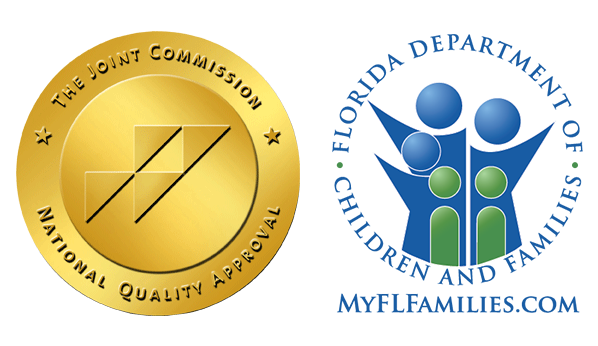Cocaine is a stimulant drug known for its confidence-boosting abilities and intense high, making it highly addictive. However, this feel-good effect doesn’t last long. With time you’ll build up a resistance to cocaine – an impact that often pushes users to up their dosage dramatically.
If you’re curious about how long cocaine stays in your system, you probably know someone with addiction or battle with drug abuse yourself. The question of cocaine and how long it stays in the body is fundamental if you’re facing an upcoming drug test.
Let’s take a closer look at cocaine abuse and how it’s metabolized in the body.
What Is Cocaine?
Classified as a schedule II stimulant, cocaine is often associated with high levels of drug abuse which can be extremely dangerous. Despite the dangers, cocaine’s effects, such as increased alertness and confidence, are addictive and often leave many people feeling more sociable and connected to those around them.
Irrespective of whether cocaine is injected, snorted, or smoked, using the drug can lead you to develop a strong physical dependence. This causes common side effects, such as the following, to arise:
- Feeling excited, happy, and high
- Increased heart rate and blood pressure
- Dilated pupils
- Feeling energetic and confident
It’s easy to see why cocaine has such a hold over users, but the euphoric high doesn’t last forever. Within fifteen to thirty minutes, you can expect to experience what’s known as a comedown (the body’s reaction to stabilizing after taking cocaine). With this, you may encounter feelings of paranoia, restlessness, and anxiety. These effects can last for days, having a severe impact on your mental health and putting you at increased risk of overdose.
Despite all this, cocaine addiction can be overcome – you just have to go about it the right way. You might think that quitting cold turkey is the fastest solution, but you’ll be up against a serious comedown and intense withdrawal. As well as being uncomfortable and painful, some withdrawal symptoms can even result in immediate death. This is why it’s so important to seek proper cocaine addiction treatment from a trusted medical clinic where you’ll be surrounded with the support and care you need to recover fully.
Signs of Cocaine Addiction
It’s not always easy to notice the signs of drug abuse, especially if you’re not willing to admit to yourself that you have a problem. Though signs of cocaine addiction will vary from one person to the next, there are a few common symptoms to look out for, including:
- An inability to control your cocaine use
- Needing to up your dosage to get the same effect
- An inability to quit or stop taking cocaine
- Experiencing withdrawal symptoms once you stop taking cocaine
- Pushing friends and family away to pursue your habit
If you suspect that a loved one is battling drug abuse, there are a few physical and psychological symptoms to look out for. These include:
- Acting irrationally or impulsively
- Mood swings
- Stealing money or being secretive about their whereabouts
- Regular nosebleeds
- Excessive sweating
- Cognitive dysfunction (delayed response times)
It’s not always easy to own up to addiction, but seeking help and acknowledging that you have a problem is the first step to recovery. Addiction treatment might seem scary, but it’s the only way you can safely detox from cocaine and start taking steps in the right direction. Treatment centers cater to a wide range of lifestyles and budgets, so there’s something to suit everyone.
What Is a Drug Test?
Simply put, a drug test searches for the presence of drugs in your system. You might have had to take one yourself before, especially in the lead-up to a new job. Drug tests are also commonly used by the police in road accidents and traffic stops or by health care providers with clients who take drug prescriptions.
Some of the most common drug tests include:
- Urine tests – Urine tests are the most common type of drug test that can detect whether cocaine has been used in the past few weeks or not. It works because drugs are continuously excreted out of a person’s body through urine. This is because cocaine is absorbed into the bloodstream and transported to the bladder.
- Hair tests – You might not think it, but drugs can be traced by analyzing your hair follicle. Once cocaine enters your system, it’s instantly absorbed into the bloodstream, and as it travels around the body, trace amounts will collect in the hair follicle.
- Saliva tests – Saliva tests are taken on-site and in full view of a healthcare provider, making them one of the most accurate drug screening options. Nothing can be hidden or tampered with – something that often happens with urine and hair tests. During a saliva test, the inside of your cheek is swabbed with a soft sponge and analyzed for traces of drugs. Since cocaine can be detected as soon as thirty minutes after use, saliva tests are often taken in cases where suspicion of cocaine use has been raised.
- Blood tests – Blood tests are taken via injection and are most often used in cases where substance abuse is suspected.
Though all drug tests can detect cocaine use, the window of time in which it can be detected varies. Some tests can detect cocaine use within twenty-four hours of use, while others can detect it up to three months after the last dosage.
How Long Does Cocaine Stay in Your System?
To understand how long cocaine can stay in your system, you first have to understand how it’s absorbed into the bloodstream. As soon as you take cocaine, your body breaks it down into metabolites. These metabolites are essentially byproducts of your body’s reaction to metabolizing and processing the drug. During a drug test, cocaine metabolites are used to confirm the presence of drugs and can be detected within twenty-four hours to ninety days.
All drug tests have a specific window of time that determines how soon they can detect cocaine metabolites. For example:
- Urine tests – Urine tests can detect cocaine’s metabolites up to four days after taking the drug.
- Saliva test – Saliva tests can detect cocaine metabolites up to two days after taking the drug.
- Hair test – Hair tests can detect metabolites up to ninety days after taking cocaine.
- Blood test – Blood or saliva tests are similar in the sense that both can detect cocaine use up to two days after taking the drug.
The average half-life of cocaine is between three to five hours after your last dosage – this is essentially the average time it takes for the drug to leave your system.
Factors That Affect How Long Cocaine Stays in Your System
Though cocaine’s half-life helps give an idea of how long it takes to leave your system, other factors at play also include:
- Weight – The higher your body fat and body mass, the longer it will take for cocaine to leave your system.
- Drug combinations – If you’ve been taking cocaine with other drugs, it will stay in your body for longer. This is particularly true if you’ve been drinking alcohol. When alcohol and cocaine are mixed, the body produces a new metabolite called cocaethylene – a combination that has a much longer half-life than cocaine alone.
- Cocaine use- How you take cocaine impacts how long it stays in your system. If you’ve snorted cocaine, it will remain in your system longer than it does upon smoking cocaine or injecting it. The more cocaine you take and the regularity of your habit will also determine how long it stays within your system. If you’re a heavy user, a drug test will make it easier to pick up and trace amounts of the drug in your system.
- Medical history – If you suffer from liver damage, you will have a harder time flushing cocaine out of your system than those who don’t. As a primary organ responsible for filtering out toxins and chemicals, the liver is the main organ involved in getting drugs out of your system.
As you can see, the chance of testing positive depends on a number of factors. If you are worried about a drug test and don’t know what to do, your best bet is to find cocaine addiction treatment.
There’s no safe way to flush cocaine out of your body quickly. You might think doing an at-home detox is the fastest solution, but it’s actually the most dangerous. As well as facing an intense come down, you’ll also need to battle withdrawal and cravings. Luckily, there is a range of treatment options to suit everyone.
Treatment for Cocaine Addiction
There are typically four stages to cocaine addiction treatment: medical evaluation, detox, withdrawal and medication, and aftercare.
Though the treatment process is generally aligned to all four stages, individual treatment options vary from place to place. Some might have more of an emphasis on therapy and mental health, while others focus on outpatient support programs.
Medical Evaluation
This is the first stage of addiction treatment. It begins with a healthcare provider asking a few questions to understand your medical history and drug use better. This will ensure that your treatment plan is personalized to your needs.
Detox
Medical staff will gradually wean you off cocaine and start to remove all traces of the drug from your system via detox.
Withdrawal and Medication
During detox, you’ll start to experience a few withdrawal symptoms. This is your body’s reaction to coming off cocaine and is entirely normal. Though uncomfortable and painful at times, you’ll be given medication to help relieve symptoms.
Aftercare
Once you’ve finished detoxing, you’ll continue to receive around-the-clock care to support you on your ongoing recovery journey.
Seeking addiction treatment is never easy, but it’s the first step towards a sober life. If you’re struggling to take that first step, consider joining support groups. In doing so, you’ll be surrounded by those on a similar journey and be pushed to open up and hold yourself accountable.
Start Your Journey With Beachcomber Rehabilitation Today
At Beachcomber Rehabilitation, we’re dedicated to helping you take the first steps in your recovery journey. We know that overcoming substance abuse isn’t easy – that’s why our addiction treatment is always fully personalized to suit you and your needs.
We also believe everybody deserves a second chance, which is why our treatment options are designed to suit every kind of lifestyle and budget. Whether you need something more intensive or something more flexible, our compassionate team will help you find the best program for you.
Are you ready to make a change? Our team is here to answer any questions you might have and guide you through the admissions process.











